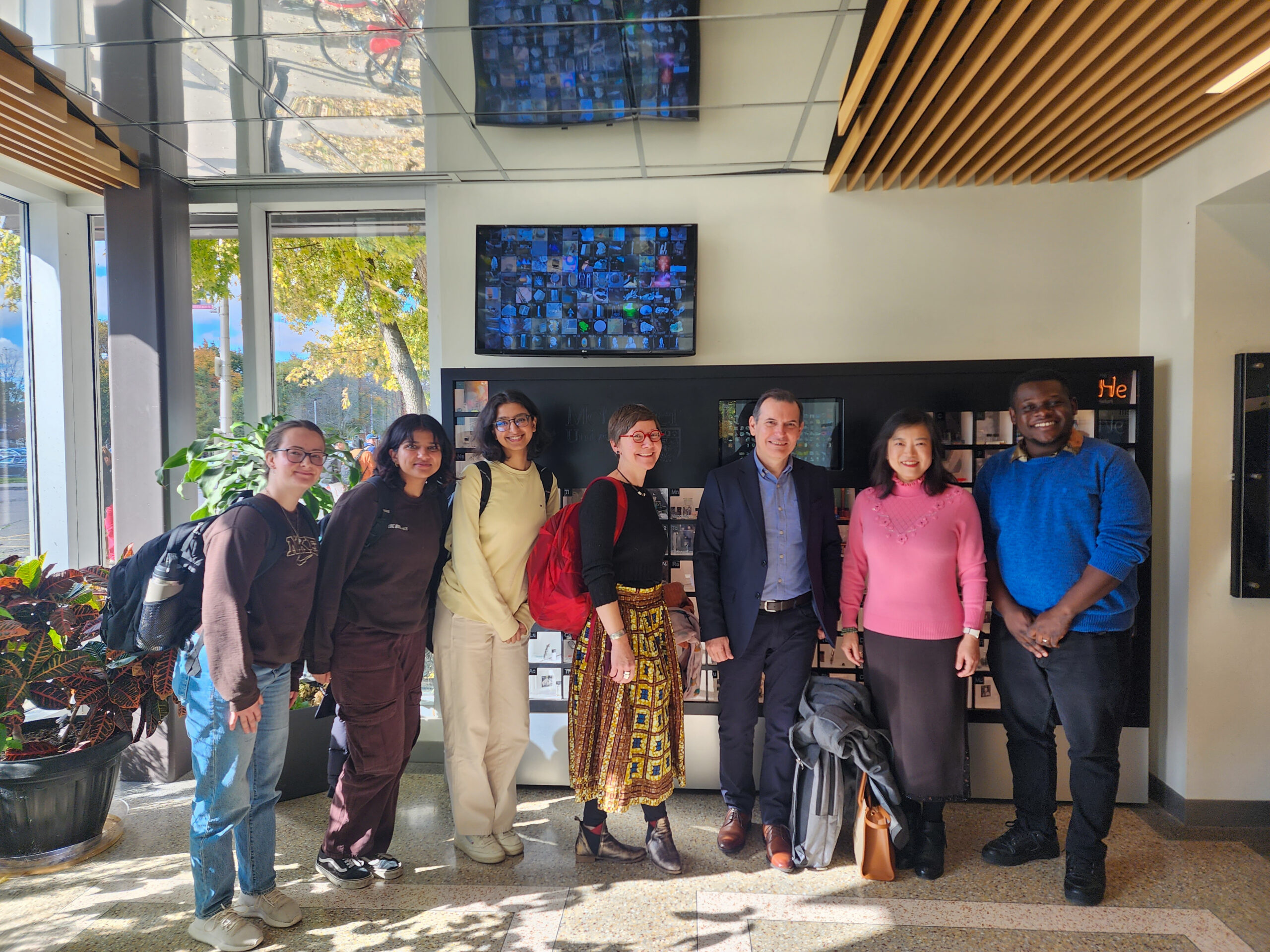Making Meaningful Change in the COVID Era: Sentiments from the UN75 Dialogue

As part of the United Nations 75th anniversary, the UN Secretary General António Guterres called upon the international community to unite and discuss ways to build a better future for the youth of tomorrow through unity and solidarity. In response to this call, McMaster University students and faculty hosted the UN75 Dialogue “Investing in Health for an Equitable Future” based on UN’s Sustainable Development Goal 3: good health and well-being. The esteemed faculty for this dialogue included Dr. Andrea Baumann (McMaster’s Associate Vice-President of Global Health and Director of the WHO Collaborating Centre in Primary Care and Health Human Resources), Dr. Bonny Ibhawoh (Chair of the United Nations Mechanism on the Right to Development and the Senator William McMaster Chair in Global Human Rights), and Dr. Peter Singer (Special Advisor to the Director General of the World Health Organization).
The conversation inspired faculty, students, and attendees to consider that although good health is a fundamental human right and a pillar of economic opportunity, for many people around the world it is difficult to achieve. Considering the current reality of navigating a pandemic-stricken world, it has become the topic of most global health dialogue recently. The dialogue provided an opportunity to shed some positive light and insight by some well renowned individuals. A facilitated discussion between Dr. Singer, Dr. Ibowah, and Dr. Baumann covered several important aspects regarding the future of global cooperation and the potential for global solutions.
Through the UN75 Dialogue, several challenges and opportunities were discussed by the global health scholars, which included:
1. The need of a greater attention to the political determinants of health
The political determinants of health represent the multiple facets of political structures that affect our lives. As pointed out by Dr. Ibowah, too often the social determinants of health overpower our consideration of the political determinants of health. When we consider the pandemic, are the poorest countries the ones with the most cases? Not necessarily. This allows us to further explore and ask what other factors may contribute to the efficiency of COVID-19 responses? The answer is most likely embedded within the political structures and systems that inherently rule our day-to-day lives.
2. Returning to the spirit of multilateralism that has aided many nations in the past
Multilateralism originally was coined as a method of mutual goal seeking and in order to address problems that individuals are experiencing, true multilateralism will need to be re-instated as a method of seeing thoughtful solutions come to fruition. All scholars present at the dialogue echoed Dr. Iowa’s sentiments as he stressed the importance of cross-continental collaboration, reinforcing the need for common solutions and goals in the face of international crises. With this in mind, mutual understanding and compromise will be better reached, even in the face of a pandemic when the goals that drive multilateralism are taken into account.
3. Addressing the vulnerable and most poor in solutions
Asking what one recommendation could be for implementing the SDG’s into our daily lives, questions regarding how global health solutions affect the most vulnerable communities was a common answer. To truly reach an equitable world for all, we must ask not just how decisions benefit ‘me’, rather how will these decisions affect the most vulnerable populations. During a changing period in history, it will be important moving forward to keep citizens who will be the most deeply impacted at the fore front of policy reform and political movements.
When problems accumulate to seemingly insurmountable issues, it can be near to impossible to tackle the approach to discover a meaningful solution. Dr. Baumann acknowledges this in their sentiments to the questions brought about during the dialogue, which she provides future global changemakers with concrete advice. She states: “Start with your local community”, or just one of the SDG’s – talk is one thing, but action is another. This could simply look like getting a hold of the meeting minutes from your local council and identifying actionable change that needs to be addressed and occur in your community. Despite its impacts felt across the world, the COVID-19 pandemic has taught us valuable lessons to implement in the future and our everyday lives.
If anyone is sitting at home, confused as to how to implement change during such a novel and unprecedented time, just remember that as a young youth changemaker, your voice matters and equity is in your hands. No place is too small to start.
Justine Gould, MSc in Global Health Candidate
Student BlogRelated News
News Listing

November 12, 2024

November 5, 2024

Pollution, Power, and Protest: Unpacking Environmental Racism from Africville to Wet’suwet’en
Student Blog
October 10, 2024
